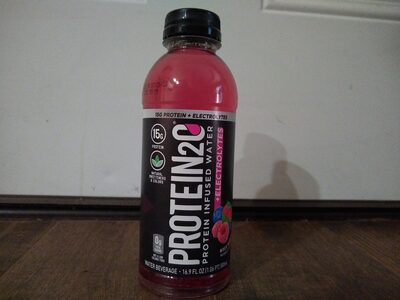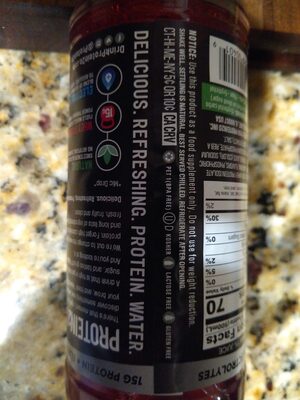Protein2O Mixed Berry - 16.9 fl oz
This product page is not complete. You can help to complete it by editing it and adding more data from the photos we have, or by taking more photos using the app for Android or iPhone/iPad. Thank you!
×
Barcode: 0858379004019 (EAN / EAN-13) 858379004019 (UPC / UPC-A)
Common name: Protein water
Quantity: 16.9 fl oz
Brands: Protein2O
Categories: Dietary supplements, Bodybuilding supplements, Protein shakes
Labels, certifications, awards: No gluten, Kosher, No lactose
Countries where sold: Canada
Matching with your preferences
Report a problem
Data sources
Product added on by kiliweb
Last edit of product page on by roboto-app.
Product page also edited by macromanguy, openfoodfacts-contributors, yuka.YTZFZ1Nva0Z2YVlFdS9ZKy9TaUpvL3hONDZhVmRFV0lEOFVRSWc9PQ, yuka.sY2b0xO6T85zoF3NwEKvllV6f_Hugi_9ORLgo3bX28yFLZD2TMNx55XWN6g.
If the data is incomplete or incorrect, you can complete or correct it by editing this page.











